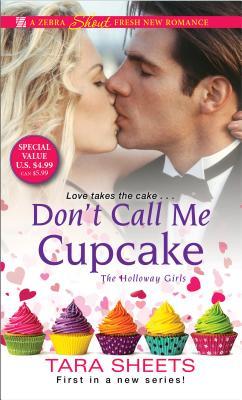The Best Bit: Don’t Call Me Cupcake by Tara Sheets
I was in the mood for something sweet when this book popped up in my recommendations. I don’t even remember where I saw it, but something about the title had me adding this to my TBR without a second thought.
Based on the cover alone, I expected sweetness, sparks and a touch of sass. What I got was a delicious small-town vibe, a cast of quirky characters, and a cleverly written measure of light paranormal fun.
Don’t Call Me Cupcake is a contemporary romance with a touch of magic. It centres on Emma Holloway, a gifted baker with the power to infuse her delicious cupcakes with magic spells, and Hunter the investor from the big city. This story is slightly spicy with Level 1 heat.

Don’t Call Me Cupcake
by Tara Sheets
There’s a very special kind of sweetness to life on Pine Cove Island . . .
Most families have a favorite recipe or two, handed down through generations. The Holloway women are a little different. Emma Holloway, like her grandmother before her, bakes wishes into her delicious cupcakes, granting the recipient comfort, sweet dreams, or any number of good things. It’s a strange gift, but it brings only happiness. Until gorgeous, smooth-talking newcomer Hunter Kane strolls into her shop, Fairy Cakes—and Emma makes the mistake of selling him not one, but three Sweet Success cupcakes.
Hunter, it turns out, is opening a fancy new restaurant and bakery right on the waterfront—Emma’s competition. To make matters worse, the town committee has decided to split the upcoming summer festival contract between the two, forcing Emma to work with her nemesis. But she can’t afford to split her profits. The solution: create a recipe that will make Hunter leave town permanently.
The Holloway charms are powerful. But there are other kinds of magic in the world—like red-hot first kisses, secret glances, and the feeling that comes with falling truly, madly, inconveniently in love . . .
The best bit (for me)
Hopefully I can share this without giving anything away. There are two antagonists in this story: one Big Bad one who I didn’t care for at all, and one Less Bad one who ended up being my favourite character from the whole of Pine Cone Island.
For most of the book, this Less Bad Antagonist (LBA) was shaping up to be just another one-dimensional archetype, a depersonalised foil for the protagonist we’re supposed to be rooting for.
But somewhere along the way, the author wrote in a clever touch — the kind of subtle turning point most of us are almost afraid to hope for in real life. This turning point revealed a rainbow of depth, rendering the LBA a complex and interesting representation of real-life struggle in the 21st century.